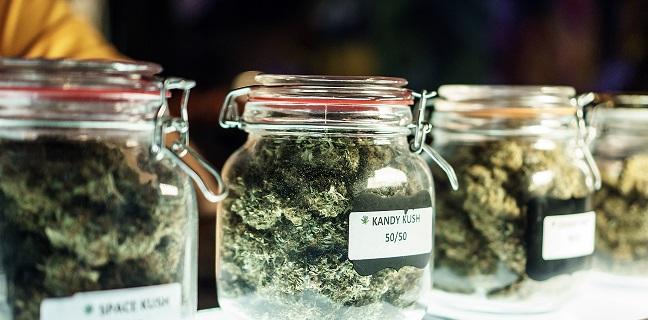Cannabis Has No CV Benefits and Substantial Risks, Says AHA Statement
The authors call for more research, particularly in vulnerable populations, so that clinicians can be better informed.

Existing evidence, though limited, shows substantial risks and no benefit from cannabis use when it comes to cardiovascular outcomes, according to a new scientific statement by the American Heart Association (AHA). Because of the increasing prevalence of both medical and recreational cannabinoids around the country, the statement authors urge the need for more research and education.
“A lot of the data that we currently have is observational. It's not prospective. There are some limitations,” writing committee chair Robert Page II, PharmD (University of Colorado, Aurora), told TCTMD. “And the other issue is the fact that a large number of the studies that have been published are what I call ‘using your grandfather's marijuana’—stuff from the 1960s and not what is being dispensed from these dispensaries in terms of the content of the THC and the CBD that's available.
“Honestly, I get questions with regard to this all the time from my cardiologists, and so therefore we needed to see: what does the evidence suggest?” he said. “That was the preface behind this.”
Healthcare professionals also need better, more dependable education about the effects of marijuana, Page added. “This is something that's not typically taught within medical and pharmacy schools, and therefore providing a source of information for our healthcare providers is very important. . . . Providers need to be aware that just because something is natural doesn't make it safe.”
The statement was published online yesterday ahead of print in Circulation.
Safety Signals
Outlining the current available literature, which is mostly observational and focuses on smoking cannabis rather than edibles, the writing committee highlights several safety signals associated with cardiovascular conditions like ACS, cerebrovascular events, heart failure, and arrhythmia. They note one study showing cannabis is used by 6% of MI patients younger than 50 years and another demonstrating an increased risk of stroke for cannabis users between 18 and 44 years.
Page said that the healthcare community also needs to realize the potential for drug-drug interactions with cannabis use as well. “Cannabis has both THC and CBD, both of which have an effect upon inhibiting cytochrome P453A4, which is the enzyme that metabolizes about 60% of drugs on the market, so there's the potential for that,” he said. “Just like with any medication, they need to be aware.”
While there might be proven benefits for patients with, say, seizure disorders or neurological conditions, it’s always important for physicians to balance these with the risks, especially when it comes to cardiovascular conditions, Page stressed.
Providers need to be aware that just because something is natural doesn't make it safe. Robert Page II
He also hopes this statement will be a “call to action” for patients to be more transparent with their clinicians regarding their cannabis use. “A lot of individuals may not reveal that and they need to. Their primary care providers need to understand that—they need to know if their patients are using cannabis,” he advised.
To be able to move the research forward, Page called for the end of cannabis as a federally-listed Schedule I drug in the United States, a status that limits its capacity to be used in studies and brings about “a lot of red tape.” He would also like to see more studies evaluating cannabis within vulnerable populations and individuals who have underlying cardiovascular risks, as “most of the data are published within young adults.”
“Research funding must be increased proportionally to match the expansion of cannabis use, not only to clarify the potential therapeutic properties but also to better understand the cardiovascular and public health implications that now follow the decriminalization of cannabis,” the statement authors write.
Cannabis science is “rapidly evolving,” Page concluded. “There are data that keep continuing to come out, and so this is probably only part one of the story.”
Yael L. Maxwell is Senior Medical Journalist for TCTMD and Section Editor of TCTMD's Fellows Forum. She served as the inaugural…
Read Full BioSources
Page RL, Allen LA, Kloner RA, et al. Medical marijuana, recreational cannabis, and cardiovascular health: a scientific statement from the American Heart Association. Circulation. 2020;Epub ahead of print.
Disclosures
- Page reports no relevant conflicts of interest.


Comments